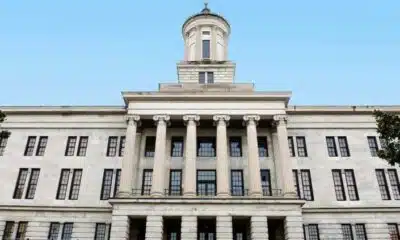(The Center Square) – Several of the reasons Gov. Greg Abbott made for vetoing a statewide THC ban, SB 3, were rejected Tuesday by the Eighth Circuit Court of Appeals.
The Texas legislature overwhelmingly passed SB 3 with bipartisan support during the regular legislative session. Late Sunday night, Abbott vetoed it.
In his proclamation explaining the veto, he said SB 3 was “well-intentioned. But it would never go into effect because of valid constitutional challenges.” If it were enacted, “its enforcement would be enjoined for years, leaving existing abuses unaddressed,” he said, adding that “Texas cannot afford to wait.”
He pointed to Arkansas enacting a THC ban in 2023, Act 629, which was challenged in court. A lower court halted it from going into effect, arguing it would “likely [be] preempted by federal statutes and that its criminal provisions were likely unconstitutionally vague,” Abbott said. “The result in Arkansas? Their law has sat dormant, meaningless, having no effect for nearly two years while further legal proceedings play out. That result must be avoided in Texas,” Abbott said. Instead, he proposed regulating THC similar to how alcohol is regulated.
On Monday, Patrick challenged each of Abbott’s arguments, saying they were flawed and factually inaccurate. Federal law expressly permits states to impose their own restrictions, including banning THC, Patrick said. He also said the Fourth and Seventh circuits have ruled as much and California and Colorado banned THC with no problems, The Center Square reported.
He said he believed the 8th Circuit would rule in favor of Arkansas.
One day later, it did.
On Tuesday, a panel of judges on the Eighth Circuit, including the chief judge, reversed the lower court’s injunction.
The judges also confirmed Patrick’s argument, stating in their 16-page ruling that nothing in the 2018 Farm Bill “preempts or limits any law of a State or Indian tribe that … regulates production of hemp and is more stringent than this subchapter.”
They also said the Arkansas Supreme Court would reach the same conclusion they did.
“We predict that the Arkansas Supreme Court would hold that” a provision, the saving’s clause, was upheld in the law, agreeing with the state.
The judges rejected the plaintiff’s argument that the state’s ban prohibited interstate commerce of hemp products, also saying, “We predict the Arkansas Supreme Court would adopt our understanding of the phrase ‘continuous transportation.’ Any more of a restrictive understanding would mean that Act 629 would violate the 2018 Farm Bill’s Express Preemption Clause.”
The judges also point out that the “text of the 2018 Farm Bill shows only that Congress wanted to facilitate state legalization of hemp, if a state wants to. Congress allows states to legalize hemp by removing the biggest hurdle – federal criminalization.”
The text of the 2018 Farm Bill “does not support” the plaintiff’s claim “that Congress intended to ‘federally protect[] hemp’ and coercively mandate nationwide legality,” the judges said. “States may obtain primary regulatory authority over hemp production,” including banning it.
“Instead, just because states may legalize hemp under the 2018 Farm Bill does not mean they must,” the judges note.
The judges also rejected the argument Abbott cited, saying the Arkansas bill “is not unconstitutionally vague and the district court abused its discretion when it issued a preliminary injunction based on the statute being void for vagueness.”
In response to the ruling, Patrick said the court ruled the way he believed it would and the Texas Senate would reintroduce SB 3 and the state legislature would pass it again.
Abbott called a special session for next month, adding SB 3 to the agenda, suggesting that the legislature implement a series of regulations to legalize THC.
The Republican Party of Texas opposes legalizing marijuana; the majority of Republicans in the legislature voted to ban it, not regulate it.
When the legislature convenes next month, Patrick said, “All we have to do is pass SB 3, just like we passed during the regular session.”












































